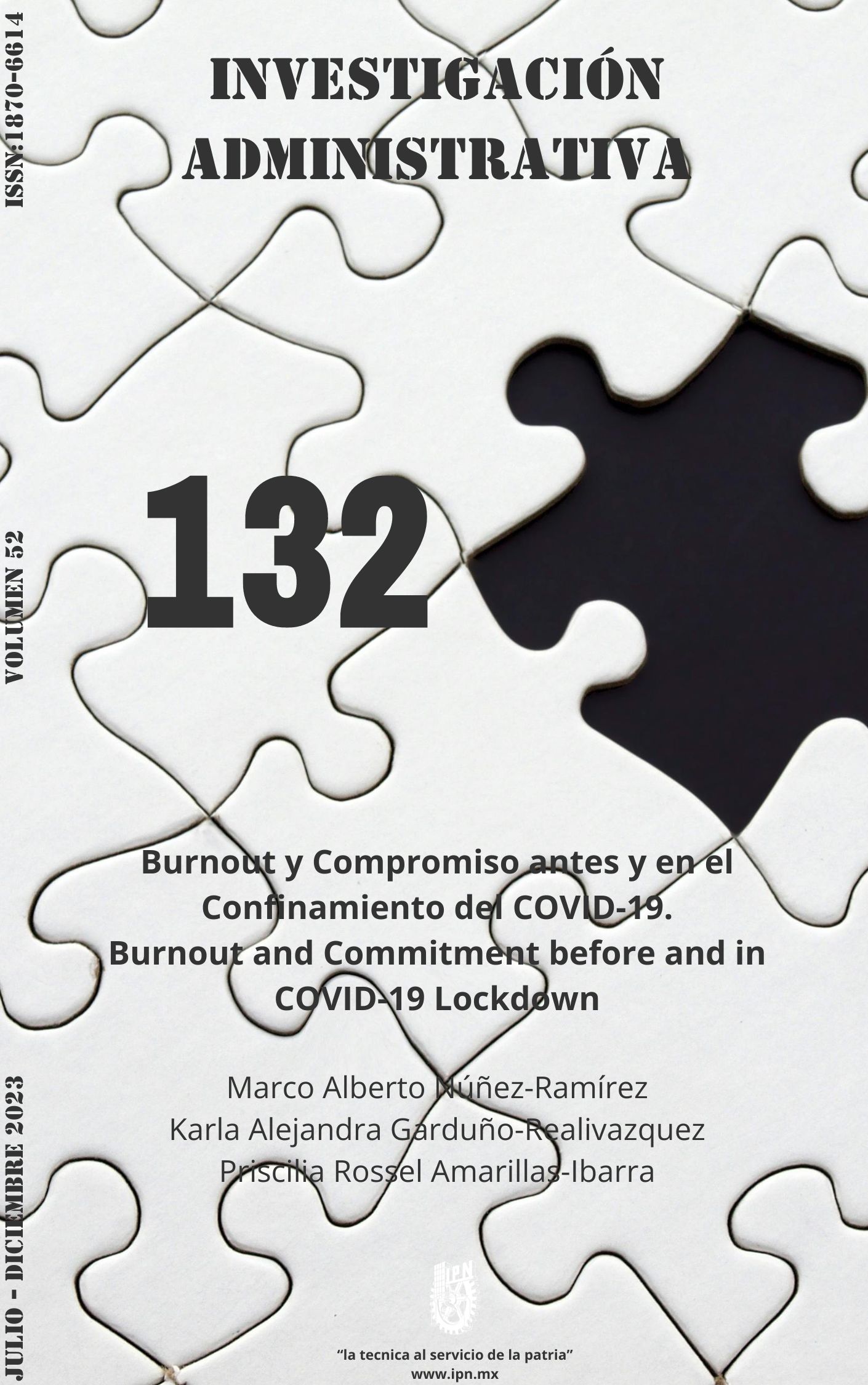Burnout and Commitment before and in COVID-19 Lockdown.
Main Article Content
Abstract
The objective was to compare burnout and affective commitment in two samples: before (n1 = 111) and during (n2 = 125) the COVID-19 pandemic in workers of a university in northwestern Mexico, and also to analyze the association between variables. A quantitative methodology was used, applying the T test, Mann-Whitney U test and structural equations. The results reflected that burnout and affective commitment were higher during the pandemic; while professional efficacy had a significant and negative influence on affective commitment (Q2 = .095), proving the three hypotheses. Evidence was obtained to contribute to the Hurricane Paradox and the Burnout Society controversy. Its originality lies in identifying how the pandemic impacted on these variables in non-WEIRD samples, that allows contributing to the universality and generalizability of science, according to Cockcroft
(2022). The main limitation was the non-probabilistic sampling used.
Article Details

This work is licensed under a Creative Commons Attribution-NonCommercial 4.0 International License.

